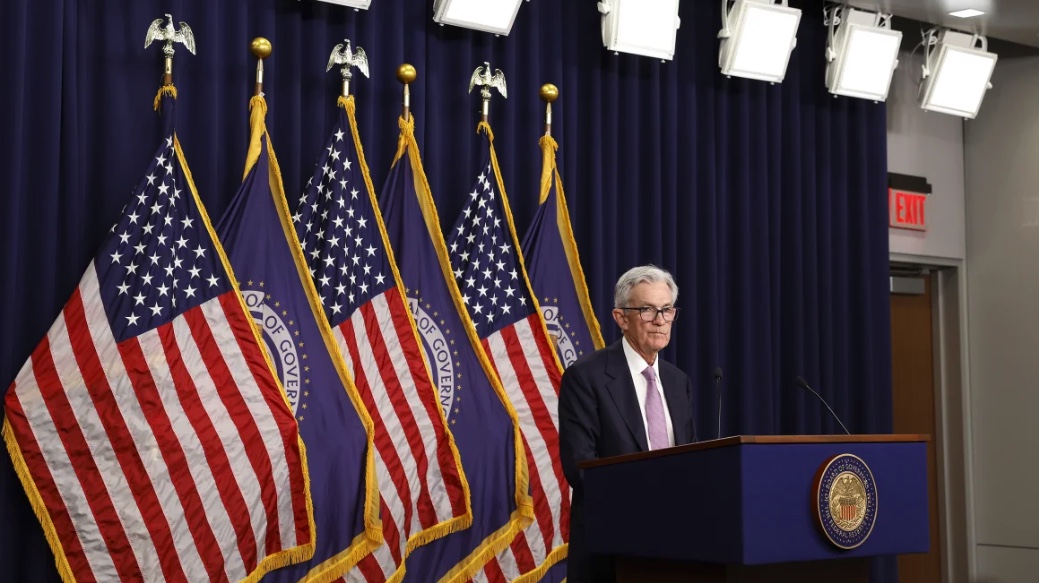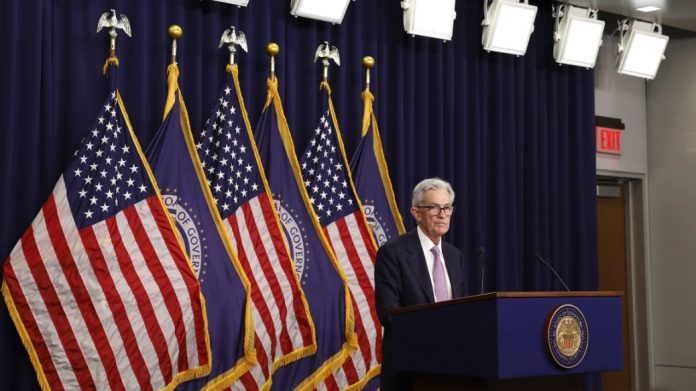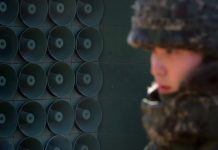หมอกหนาที่ปกคลุมเศรษฐกิจสหรัฐฯ อาจจะเริ่มจางหายไปในไม่ช้า
ตลอดหลายเดือนที่ผ่านมา ผู้บริโภคและภาคธุรกิจในสหรัฐฯ ต่างรู้สึกถึงความไม่แน่นอนจากการเลือกตั้งประธานาธิบดีที่กำลังจะมาถึง โดยหลายบริษัทเลื่อนการซื้อขายและการลงทุนจนกว่าจะรู้แน่ชัดว่าใครจะก้าวขึ้นมาเป็นผู้นำประเทศ จากข้อมูลการสำรวจและความคิดเห็นจากผู้บริหารขององค์กรต่าง ๆ
ทั้งรองประธานาธิบดี กมลา แฮร์ริส และอดีตประธานาธิบดี โดนัลด์ ทรัมป์ ต่างนำเสนอนโยบายเศรษฐกิจที่มีจุดมุ่งหมายเพื่อเพิ่มความสามารถในการเข้าถึงสินค้าราคาไม่แพงและเสริมความแข็งแกร่งให้กับเศรษฐกิจ แต่แต่ละนโยบายมีแนวทางที่แตกต่างกัน ซึ่งอาจส่งผลต่างกันต่อภาษีและเงินเฟ้อ อย่างไรก็ตาม ด้วยการเลือกตั้งที่สูสี การคาดการณ์นโยบายเศรษฐกิจของสหรัฐฯ ก็อาจยังไม่ชัดเจนในทันที
แต่สิ่งหนึ่งที่แน่นอนคือ การตัดสินใจอัตราดอกเบี้ยครั้งล่าสุดของธนาคารกลางสหรัฐฯ (เฟด) ซึ่งจะประกาศในวันพฤหัสบดีนี้
เฟดได้ลดอัตราดอกเบี้ยลงในเดือนกันยายนเป็นครั้งแรกในรอบกว่าสี่ปี ขณะเดียวกันก็ส่งสัญญาณว่าจะมีการลดอัตราดอกเบี้ยเพิ่มเติม แต่ข้อมูลทางเศรษฐกิจล่าสุดที่ออกมา ซึ่งส่งผลต่อการตัดสินใจของเฟด จะเป็นตัวชี้ชัดในทิศทางการลดอัตราดอกเบี้ยต่อไป โดยคำกล่าวของเจอโรม พาวเวล ประธานเฟดหลังการประชุมในวันพฤหัสบดีนี้อาจให้ความกระจ่างว่าเฟดยังคาดการณ์การลดอัตราดอกเบี้ยในระดับเดิมหรือไม่
แม้จะยังมีความไม่แน่นอนอยู่ แต่การเตรียมพร้อมสำหรับเศรษฐกิจอาจเริ่มที่จะคืบหน้า
ทางเลือกสองแบบที่มีผลต่อเศรษฐกิจ
เนื่องจากผลการเลือกตั้งจะกำหนดแนวทางของเศรษฐกิจในอนาคต การตัดสินใจที่สำคัญ เช่น การขยายธุรกิจหรือการซื้อบ้าน อาจรอไปจนกว่าจะทราบผลเลือกตั้ง
นโยบายเศรษฐกิจของทรัมป์เสนอการเปลี่ยนแปลงครั้งใหญ่ เช่น การเนรเทศคนจำนวนมากและการตั้งภาษีนำเข้าสูง ส่วนแนวทางของแฮร์ริสใช้วิธีการที่นุ่มนวลกว่า เช่น การฟื้นฟูเครดิตภาษีเด็กที่หมดอายุและเพิ่มการหักลดหย่อนภาษีสำหรับค่าใช้จ่ายเริ่มต้นของธุรกิจ
แม้ว่าทั้งสองแนวทางจะมีเป้าหมายเพื่อช่วยให้ประชาชนและธุรกิจได้พักหายใจจากความกดดันด้านเศรษฐกิจ แต่การสำรวจจาก The Wall Street Journal พบว่านักเศรษฐศาสตร์กว่า 68% เชื่อว่าราคาสินค้าจะเพิ่มขึ้นเร็วกว่าในแผนของทรัมป์มากกว่าแผนของแฮร์ริส โดยเฉพาะการตั้งภาษีนำเข้าสูง ซึ่งจะส่งผลให้ต้นทุนเพิ่มขึ้นสำหรับธุรกิจในสหรัฐฯ เนื่องจากเป็นผู้นำเข้าสินค้า
การสำรวจล่าสุดของผู้บริหารการเงินจากธนาคารกลางภูมิภาคและมหาวิทยาลัย Duke พบว่า เกือบหนึ่งในสามของผู้ตอบแบบสอบถามกล่าวว่าพวกเขาได้ “เลื่อน” “ลดขนาด” “เลื่อนออกไปอย่างไม่มีกำหนด” หรือ “ยกเลิก” แผนการลงทุนระยะสั้นและระยะยาวในปีนี้เนื่องจากความไม่แน่นอนของผลการเลือกตั้ง
ผู้บริโภคก็รู้สึกลังเลที่จะตัดสินใจซื้อสินค้าขนาดใหญ่ เช่น บ้าน ซึ่งความไม่แน่นอนนี้อาจเป็นเหตุผลว่าทำไมยอดขายบ้านมือสองจึงซบเซาในช่วงหลายเดือนที่ผ่านมา
รอคอยการลดดอกเบี้ยจาก Fed
ขณะนี้หลายคนกำลังเฝ้ารอดูว่าอัตราดอกเบี้ยในสหรัฐฯ จะลดลงอีกหรือไม่ ซึ่งดูเหมือนว่าการลดดอกเบี้ยจะเกิดขึ้นจริงในเร็ว ๆ นี้
ตัวเลขการจ้างงานล่าสุดจากรัฐบาลซึ่งเผยแพร่เมื่อวันศุกร์ที่ผ่านมาแสดงให้เห็นว่าตลาดงานเย็นลงอย่างเป็นระเบียบ ไม่ได้ลดลงอย่างรวดเร็ว ซึ่งเป็นผลจากการนัดหยุดงานและภัยธรรมชาติเมื่อไม่นานนี้ที่ส่งผลต่อข้อมูลชั่วคราว
เจ้าหน้าที่ของเฟดระบุว่า เฟดจะยังคงพยายามรักษาเสถียรภาพของตลาดแรงงานและเชื่อว่าอัตราดอกเบี้ยยังคงอยู่ในระดับที่สูงเกินไป ดังนั้นเมื่อการเติบโตของการจ้างงานไม่เร่งตัวขึ้น หลังจากตัวเลขการจ้างงานที่ดีกว่าคาดในเดือนกันยายน นั่นหมายความว่าการลดอัตราดอกเบี้ยอีกครั้งน่าจะเกิดขึ้นในสัปดาห์นี้ นักลงทุนมั่นใจว่าเฟดจะลดอัตราดอกเบี้ยอีก 0.25% ตามฟิวเจอร์สที่แสดง
อัตราดอกเบี้ยที่ต่ำลงอาจดึงดูดผู้ซื้อบ้านที่รอดูสถานการณ์อยู่ และสำหรับธุรกิจ อาจจะช่วยสนับสนุนแผนการที่มีการคำนวณอัตราดอกเบี้ยที่ต่ำลงไว้แล้ว
The world is about to get some much-needed clarity on the US economy’s future

A dense fog clouding the US economy could soon clear.
For months, US consumers and businesses have felt some degree of paralysis from the upcoming presidential election, putting off purchases and investments until the world knows who will move into the White House, according to surveys and comments from corporate executives.
Vice President Kamala Harris and former President Donald Trump both offer economic agendas that broadly aim to improve affordability and strengthen the economy, but each have starkly different approaches — which would result in different effects on taxes and inflation. But businesses may not get the clarity about America’s economic policy direction right away: Polls show a tight race, which could mean it will take some time to determine who the next president will be.
One bit of clarity they’re sure to get: The Federal Reserve’s latest interest rate decision, due to be announced Thursday.
The Fed lowered borrowing costs in September for the first time in more than four years while signaling additional rate cuts. But a slew of economic figures have been released since the decision, which is important because the Fed’s decision are guided by what those figures show. Chair Jerome Powell’s remarks at a post-meeting news conference Thursday could shed some light on whether Fed officials’ earlier expectations for the pace of rate cuts still hold.
Don’t expect all lingering uncertainties to be answered this week. Still, America’s wait-and-see posture could, at the very least, begin to thaw.
A choice of two different economic realities
Because the outcome of the election will set the course for the economy in the coming years, it could be prudent to put off pivotal decisions such as expanding a business or buying a home until after the fact.
Trump’s economic vision calls for drastic changes, such as mass deportations and high across-the-board tariffs, while the Harris agenda proposes more measured solutions, such as restoring an expired extension to the child tax credit and increasing a tax deduction for startup expenses.
While the endgame for both candidates is to provide everyday Americans and businesses some relief, a survey of economists by The Wall Street Journal showed that more than two-thirds (68%) of respondents believe prices would rise faster under Trump’s plan than Harris’. High tariffs are a key part of Trump’s economic plan, and they threaten to raise costs for businesses since higher tariffs are paid by US-based importers, not foreign countries as Trump claims. That would also eventually result in faster consumer inflation.
A recent quarterly survey of chief financial officers at small and major companies across industries by two regional Federal Reserve banks and Duke University showed that nearly a third of respondents said they “postponed,” “scaled down,” “delayed indefinitely” or “permanently canceled” their short-term and long-term investment plans this year because of uncertainty over the election’s outcome.
“Uncertainty in the outcome of the upcoming election has resulted in several risk analysis studies to be prepared,” a transportation equipment manufacturer said in the Institute for Supply Management’s latest survey of manufacturers, released Friday.
Consumers are also feeling hesitant to make any major purchasing decisions, such as a home.
Election uncertainty might be a reason why sales of previously owned homes have been so sluggish in recent months, said Lawrence Yun, the chief economist of the National Association of Realtors.
“Maybe people are just waiting to see what the results of the election will be before making a major decision, like home buying or home selling,” Yun said in a recent call with reporters. “Maybe after the election we’ll see some robust gains.”
Waiting on the Fed to continue cutting rates
The world is also watching closely to see if US interest rates are headed lower. That seems to be the case at the moment.
The government’s latest employment figures released Friday showed the job market is cooling in an orderly fashion, not falling off a cliff, when stripping out the temporary effects of recent labor strikes and natural disasters on data.
Fed officials have said in recent speeches that they’re committed to keeping the labor market intact and think interest rates are still at restrictively high levels. So, since the job market isn’t heating back up, after better-than-expected job growth figures for September, that means another rate cut is on track to be rolled out this week. Investors are betting with near certainty that the Fed will deliver a quarter-point cut, according to futures.
Lower rates could entice home buyers to come off the sidelines, and for businesses it could continue plans that have “baked in” lower rates. It’s now just a matter of waiting for lower rates to come about.
By Bryan Mena, CNN

















